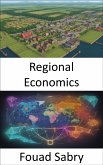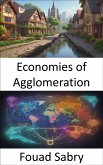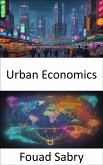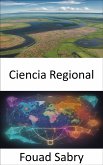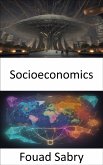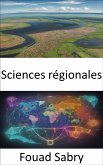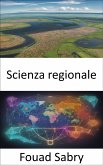What is Regional Science
Regional science is a subfield of the social sciences that focuses on the application of analytical methods to problems that are specific to urban, rural, or regional settings. Location theory or spatial economics, location modeling, transportation, migration analysis, land use and urban development, interindustry analysis, environmental and ecological analysis, resource management, urban and regional policy analysis, geographical information systems, and spatial data analysis are some of the topics that fall under the purview of regional science. However, this list is not exhaustive. Regional scientists are open to any social scientific investigation that incorporates a geographical component, in the broadest definition of the term.
How you will benefit
(I) Insights, and validations about the following topics:
Chapter 1: Regional science
Chapter 2: Human geography
Chapter 3: Social science
Chapter 4: Economic geography
Chapter 5: Urban geography
Chapter 6: Urban economics
Chapter 7: Masahisa Fujita
Chapter 8: Quantitative revolution
Chapter 9: Location theory
Chapter 10: Regional economics
Chapter 11: Edward Soja
Chapter 12: Brian Berry
Chapter 13: Spatial inequality
Chapter 14: Walter Isard
Chapter 15: Luc Anselin
Chapter 16: Geography
Chapter 17: Natural resource economics
Chapter 18: Metal
Chapter 19: Manfred M. Fischer
Chapter 20: Regional Studies Association
Chapter 21: Isabelle Thomas (geographer)
(II) Answering the public top questions about regional science.
(III) Real world examples for the usage of regional science in many fields.
(IV) Rich glossary featuring over 1200 terms to unlock a comprehensive understanding of regional science. (eBook only).
Who will benefit
Professionals, undergraduate and graduate students, enthusiasts, hobbyists, and those who want to go beyond basic knowledge or information for any kind of regional science.
Regional science is a subfield of the social sciences that focuses on the application of analytical methods to problems that are specific to urban, rural, or regional settings. Location theory or spatial economics, location modeling, transportation, migration analysis, land use and urban development, interindustry analysis, environmental and ecological analysis, resource management, urban and regional policy analysis, geographical information systems, and spatial data analysis are some of the topics that fall under the purview of regional science. However, this list is not exhaustive. Regional scientists are open to any social scientific investigation that incorporates a geographical component, in the broadest definition of the term.
How you will benefit
(I) Insights, and validations about the following topics:
Chapter 1: Regional science
Chapter 2: Human geography
Chapter 3: Social science
Chapter 4: Economic geography
Chapter 5: Urban geography
Chapter 6: Urban economics
Chapter 7: Masahisa Fujita
Chapter 8: Quantitative revolution
Chapter 9: Location theory
Chapter 10: Regional economics
Chapter 11: Edward Soja
Chapter 12: Brian Berry
Chapter 13: Spatial inequality
Chapter 14: Walter Isard
Chapter 15: Luc Anselin
Chapter 16: Geography
Chapter 17: Natural resource economics
Chapter 18: Metal
Chapter 19: Manfred M. Fischer
Chapter 20: Regional Studies Association
Chapter 21: Isabelle Thomas (geographer)
(II) Answering the public top questions about regional science.
(III) Real world examples for the usage of regional science in many fields.
(IV) Rich glossary featuring over 1200 terms to unlock a comprehensive understanding of regional science. (eBook only).
Who will benefit
Professionals, undergraduate and graduate students, enthusiasts, hobbyists, and those who want to go beyond basic knowledge or information for any kind of regional science.
Dieser Download kann aus rechtlichen Gründen nur mit Rechnungsadresse in A, B, BG, CY, CZ, D, DK, EW, E, FIN, F, GR, H, IRL, I, LT, L, LR, M, NL, PL, P, R, S, SLO, SK ausgeliefert werden.



